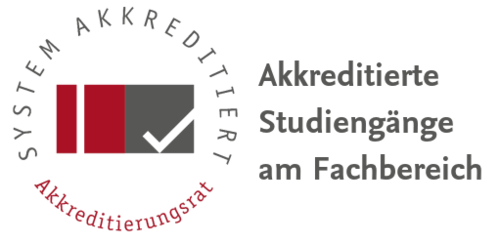Islamic Studies at the Freie Universität Berlin
The History of the Institute: Former and Current Professors and Academic Specializations
The Institute of Islamic Studies was first established in 1948 under the umbrella of religious studies at Freie Universität Berlin, shortly after the university itself had been founded. Its first director was Walther Braune, a student of the Protestant theologian Paul Tillich, the latter of whom emigrated to America soon after the Nazis came to power. Braune, who held the position until the late 1960s, was the only full professor at the time, and Islamic studies did not yet exist as a separate institution. The decision to divide the unit into two separate institutes with different research focuses was carried out under Braune’s successor, when two professorships for religious studies and three professorships for Islamic studies were established. Fritz Steppat (who passed away in 2006) and Baber Johansen, who was appointed to Paris in 1995 and later to Harvard in 2005, were professors of Islamic studies, while Egon Eichgrün held the professorship in Ottoman studies and Turcology. Turcology and Ottoman studies now is an institute of its own, with which we closely work together.
Gudrun Krämer held what had been Steppat’s position as director until 2019. She was succeeded in 2021 by Florian Zemmin, who is professor of Islamic studies with a focus on modernity era and present day. The post previously held by Baber Johansen was taken on by Sabine Schmidtke from 2002 to 2014 and Konrad Hirschler from 2016 to 2021. Recently renamed the “Professorship for Classical Islam,” the position is now filled with Christian Mauder. Alongside the two professorships in modern/contemporary Islam and classical Islam, there are also professorships in Islamic studies with a focus on Islamic law (held by Birgit Krawietz) and Islam in Europe (held by Schirin Amir-Moazami). Ulrike Freitag, an expert in modern history of the Arab world, is the director of the Leibniz-Zentrum Moderner Orient (ZMO) and holds a joint professorship at the institute (Sonderprofessur). She took over the position of director at the ZMO from Ulrich Haarmann, who was also a joint professor at our institute until 1999. Our institute is thus home to a remarkably diverse team of researchers and offers a broad thematic spectrum, which is clearly reflected in the sheer wealth of fascinating research projects, partnerships, and courses we have at hand.
Thematic Focus of Islamic Studies at Freie Universität Berlin
We are committed to taking an innovative cross-disciplinary approach to Islamic studies as a diverse and multifaceted field rather than solely limiting our scope to a narrow understanding of Islam as a subject of study. We do so decidedly from a non-confessional viewpoint. We conduct research on Islamic and Middle Eastern history and Muslim societies and cultures from the perspective of global interrelations and analogies to other temporal or spatial contexts. In addition, we continue to critically reflect on persisting constructions of “Islam” as a distinct area of study, as well as to make use of critical apparatuses (for example, the critique of Orientalism) to question specific regional classifications. This is closely related to ongoing reflection on our own perspectives and positionality in dealing with our specific objects of research.
The institute primarily specializes in theories and methods from history, social studies, and cultural studies. You can find further insights regarding our professors’ research profiles and activities on our website linked above. There you will also find an overview of ongoing and completed research projects as well as the courses we offer.

